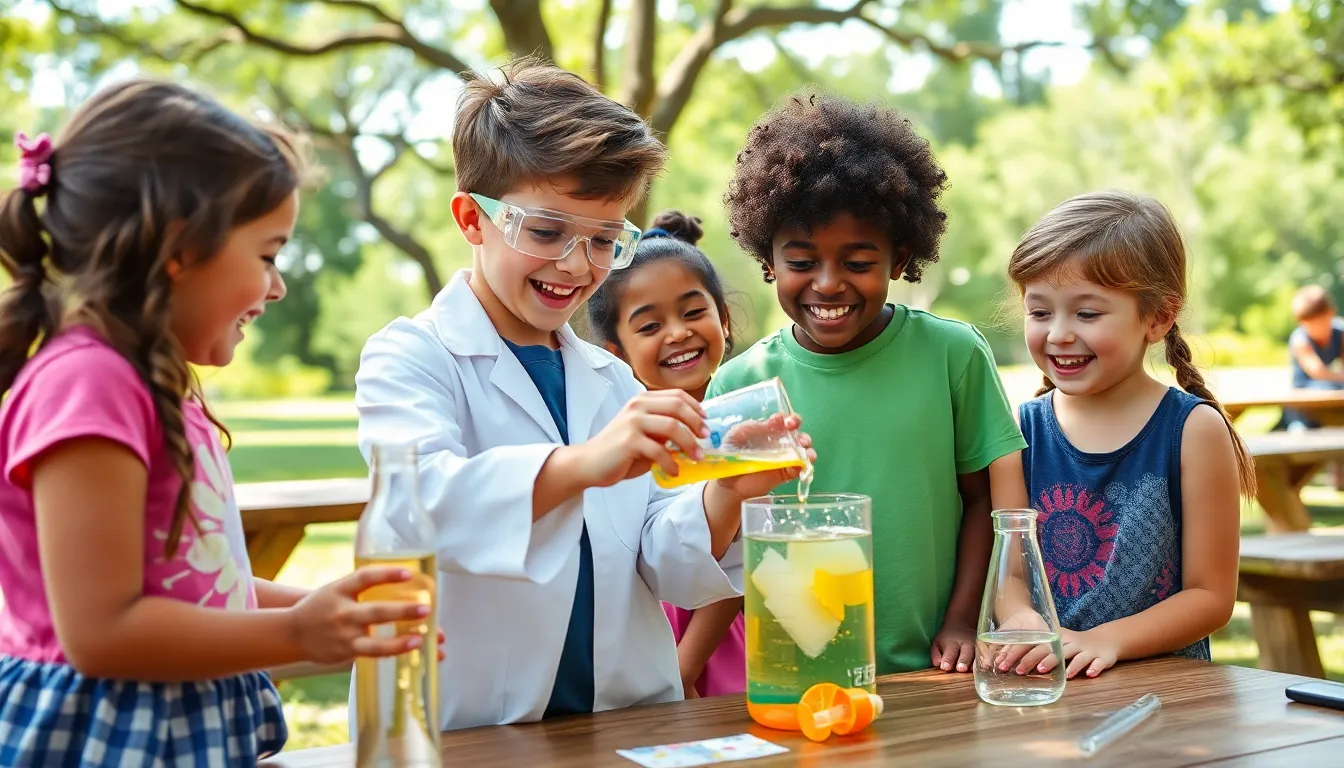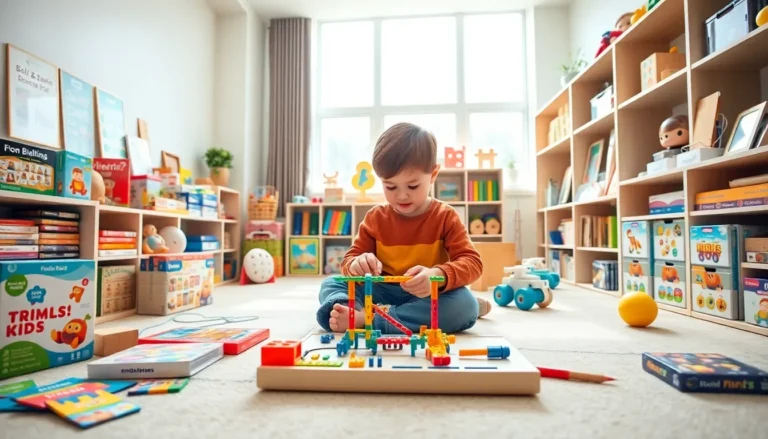As summer rolls around, the sun shines brighter and kids start dreaming of lazy days by the pool. But what if they could dive into a world of adventure while learning something new? Enter summer learning camps—where fun meets education in a spectacular showdown. Forget the boring classrooms; these camps transform learning into an exciting expedition filled with hands-on activities, new friendships, and maybe even a little mud wrestling (just kidding… sort of).
Table of Contents
ToggleOverview of Summer Learning Camps
Summer learning camps serve as engaging alternatives to traditional classrooms, focusing on educational growth during the summer months. Many programs emphasize a blend of fun and learning, allowing children to explore new subjects outside the typical school environment. These camps often feature hands-on activities that stimulate creativity and critical thinking, making the learning process enjoyable.
Participants gain opportunities to develop various skills, including teamwork, problem-solving, and leadership. Camps offer a diverse range of activities, such as science experiments, art projects, and sports, ensuring that there’s something for everyone. Various age groups can find camps tailored to their interests, whether it’s technology, nature exploration, or creative writing.
Social interaction forms a core component of summer learning camps. Kids make new friends, share experiences, and collaborate on projects, fostering a sense of community. Through these interactions, campers build confidence and improve their communication skills, benefiting them academically and socially.
The structure of summer learning camps often includes themed sessions or skill-building workshops. Each session can focus on specific educational goals, such as enhancing math skills or exploring environmental science. By blending structured learning with enjoyable activities, camps create a dynamic environment that nurtures a love for learning.
Programs are typically designed to accommodate varying skill levels, ensuring children receive the support they need to thrive. Resources, such as experienced instructors and well-planned curriculum, contribute to a quality learning experience. By choosing to participate in a summer learning camp, children can enhance their educational journey while enjoying their summer vacation.
Benefits of Summer Learning Camps

Summer learning camps offer numerous advantages, blending education with fun experiences for children. These programs foster academic growth while enhancing social skills.
Academic Improvement
Engagement in summer learning camps improves academic performance by reinforcing concepts through hands-on activities. Children explore subjects like science and math using real-world applications. This unique approach helps solidify knowledge gained during the school year. Customized programs target specific needs, ensuring that all skill levels receive appropriate support. Research indicates that students who participate in these camps show improved retention rates and readiness for the upcoming school year. Increased enthusiasm for learning also manifests, as children connect new information with enjoyable experiences.
Social Skills Development
Social interactions thrive in summer learning camps, providing opportunities for children to make friends and practice teamwork. Camp participants collaborate on projects, enhancing communication skills, and building confidence. Scheduled group activities promote respect, empathy, and understanding among peers. Kids learn to navigate diverse social situations as they engage in sports, art, and cooperative tasks. This environment fosters a sense of community that extends beyond the camp, encouraging lasting friendships. Children return home not only with new academic insights but also with improved interpersonal skills.
Types of Summer Learning Camps
Summer learning camps come in various formats. Each type caters to different interests and educational goals.
Academic Camps
Academic camps focus on enriching learning experiences. Subjects like math, science, and language arts receive special attention through hands-on activities. Innovative teaching methods engage students, fostering critical thinking and creativity. Participants often use real-world scenarios to reinforce classroom concepts. Research indicates students in these camps show improved retention rates, strengthening their skills for the upcoming school year.
Recreational Camps
Recreational camps combine fun with learning, emphasizing physical activities and teamwork. Children participate in sports, outdoor adventures, and arts and crafts. These camps create an environment where kids can express themselves while developing new skills. Group activities encourage collaboration and friendship among peers. Social interactions enhance communication skills, fostering confidence in diverse social settings. Recreational camps offer a blend of enjoyment and personal growth, making learning feel like play.
Specialty Camps
Specialty camps concentrate on specific interests or skills. Options include technology, performing arts, and environmental education. Programs are designed to inspire passion and creativity, allowing kids to dive deep into their chosen topics. Participants develop expertise through immersive experiences and mentorship from skilled instructors. Building confidence in their abilities leads to personal growth and enhanced self-esteem. Specialty camps provide opportunities for children to explore their talents and discover new ones.
Choosing the Right Summer Learning Camp
Selecting the most suitable summer learning camp involves careful consideration of several factors. Parents should evaluate the camp’s curriculum and ensure it aligns with their child’s interests.
Factors to Consider
Age-appropriate activities enhance engagement and facilitate personal growth. Camp location plays a role, with nearby options offering convenience and reducing travel time. Assess safety measures in place to protect children during their stay. Consider the staff-to-camper ratio, as lower ratios often lead to personalized attention and better experiences.
Evaluating the camp’s reputation through reviews or testimonials can provide insights into previous participants’ experiences. Flexible scheduling options may accommodate varying family needs while enhancing overall convenience.
Questions to Ask Camp Providers
What subjects and themes do they focus on during the summer? Parents should ask about the specific learning goals for children throughout the camp. Inquire about staff qualifications to gauge their expertise in teaching and supervision.
Understanding the activities scheduled daily can help parents determine if they fit their child’s preferences. It’s important to ask about safety protocols, ensuring the camp prioritizes children’s well-being.
Finally, discussing the availability of feedback mechanisms allows parents to stay informed about their child’s progress and experiences.
Summer learning camps offer a unique opportunity for children to blend fun with education. By participating in these programs, kids not only reinforce academic skills but also develop social abilities that last a lifetime. The diverse activities available cater to various interests and learning styles, ensuring every child finds their niche.
Parents play a crucial role in selecting the right camp to maximize these benefits. By considering factors like curriculum and safety, they can ensure their child has a rewarding experience. Ultimately, summer learning camps help cultivate a love for learning while providing unforgettable memories and friendships.





